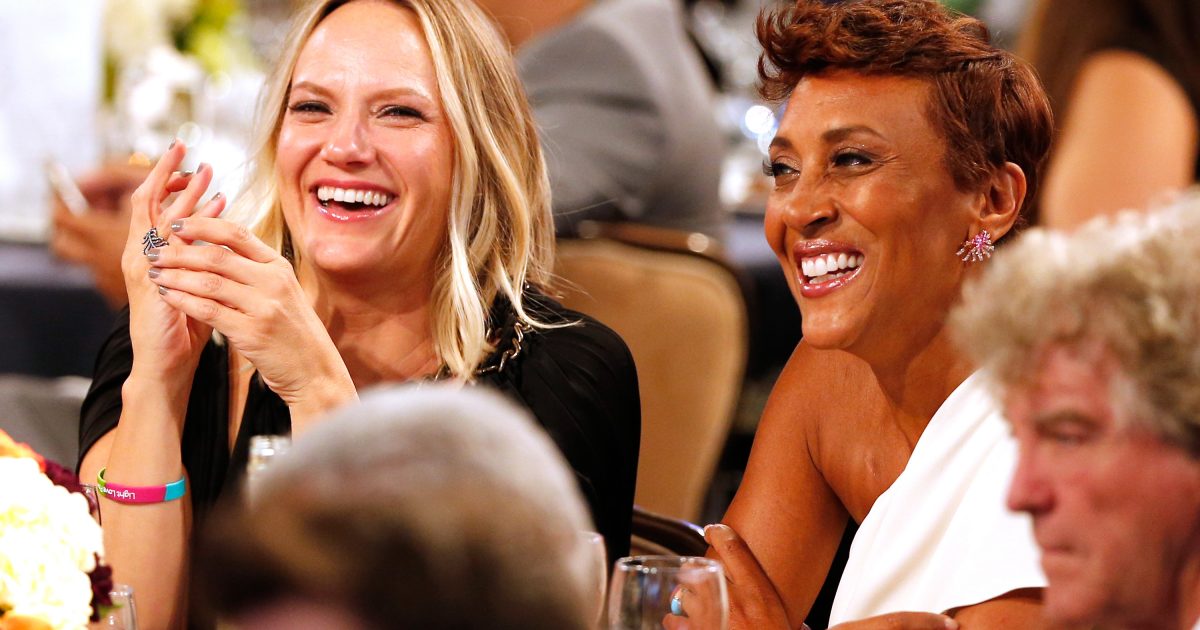Stopping to Smell the Roses During Difficult Times
- Good Morning America host and breast cancer survivor Robin Roberts, 61, has been open about her longtime partner’s current battle with the same disease. Amber Laign, 47, was diagnosed late last year.
- Returning the favor now as Laign’s primary caregiver, the New York-based broadcaster has understandably had some hard days, but is appreciating life’s simple moments, like being given tulips from a stranger to help brighten her day.
- Watching someone you love go through cancer is difficult enough as it is, so if you add being a caregiver on top of that, it's possible you may have mixed emotions, especially if you yourself are a cancer survivor.
Returning the favor now as Amber Laign’s primary caregiver, the New York-based broadcaster has understandably had some hard days, but is appreciating life’s simple moments and a surprise gesture from a stranger.
Read MoreView this post on Instagram
Robin is always encouraging others to do good, and by sharing this simple act, she helps motivate others to pay it forward and do something kind for someone else, after all, you never know what hurdles people are currently going through, so one simple gesture can help make someone’s day more than you know.
Robin's Role as Caregiver
Radiating positivity everywhere she goes, Robin Roberts is a natural born cheerleader, which is essentially one of the traits of a caregiver. The unsung heroes of the medical world are caregivers. When a loved one is diagnosed with cancer, or another serious illness, and they can't care for themselves, as a loved one, it may be your job to step into that role of caregiver.

Watching someone you love go through cancer is difficult enough as it is, so if you add being a caregiver on top of that, it's possible you may have mixed emotions, Tom Evans, pastor of the Brick Presbyterian Church in New York City, tells SurvivorNet.
'A Sacred And Blessed Calling' Managing Life As a Caregiver
As wonderful as it is for Roberts to be able to be there for her partner, no one can be a caregiver 24/7. Pastor Evans has some words of advice to all in the role of caregiver out there: "Just remember that you can't care for someone else properly unless you're strong. So don't hesitate to find those times."
Related: Actor Kristen Bell Honors Cancer Caregivers: 'I Know What it's Like'
"It'll break anybody," he adds. Just like everyone else, as a caregiver, you're entitled to your emotions.
"So, you need to find time out where you're not doing that and where others are helping you," he adds, "and that in those frustrations and that anger, take time to find someone to express that to, whether it's a friend, whether it's a pastor, whether it's a neighbor, because as you work that out of your system, you'll be better, able to be there for them."
Robin's Cancer Battles
Robin Roberts was diagnosed with breast cancer in 2007 after discovering a lump. Ironically, she made this discovery while prepping for a news segment on performing self-checks, which shows just how important they are to perform at home.
Related: Getting to Know Your Breasts with Self-Exams
"At first I thought, 'This can't be. I am a young, healthy woman,'" Roberts said, which tends to echo through many women's heads following a diagnosis.
The journalist's early detection was a critical factor in her survival. She treated her breast cancer with surgery, one of several treatment options for this disease, which can also be treated with radiation, chemotherapy, hormone therapy and immunotherapy.
In addition to battling breast cancer, Roberts had MDS, which stands for myelodysplastic syndromea rare type of blood cancer where abnormal cells form in the body's bone marrow. Roberts had to undergo a bone marrow transplant.
Related: What's the Standard Treatment for MDS (Myelodysplastic Syndrome)?
Chemotherapy for breast cancer could have likely contributed to Roberts' secondary cancer. Although it is rare, it is one of the risks of treatment. MDS caused by cancer treatment is called "secondary MDS" or "treatment-related MDS."
Although risks and complications can happen with treatment, many patients feel that is is highly better than the alternativeand that the benefits outweigh potential side effect and future outcomes. So, while treatment may feel like your ultimate foe while going through it, just keep reminding yourself that there is light at the end of the tunnel, it is most likely only a temporary situation, and never give up hope.
Learn more about SurvivorNet's rigorous medical review process.


